The content of the article
- 1 Useful properties of cinnamon
- 2 Types of this spice and its composition
- 3 Cinnamon dosage
- 4 Cinnamon for various diseases
- 5 The combination of honey and cinnamon
- 6 Cinnamon Tea
- 7 How to add cinnamon to your diet
- 8 Cinnamon contraindications
- 9 Unwanted interactions
- 10 Video: the beneficial properties and harms of cinnamon
Cinnamon is considered a real natural treasure. This spice is often used in pastries and various culinary dishes. In addition to the exquisite aroma and incredible taste, it has a number of useful properties that you should be aware of. It is rich in vitamins and beneficial elements. Spice is also known for its antioxidant effect, which is actively used in cosmetology.
Useful properties of cinnamon
This red-brown spice has healing properties that have been known since antiquity. In the Middle Ages, doctors used cinnamon to treat arthritis, cough, and sore throat. Cinnamon adds energy and vitality, is an excellent source of calcium, iron and manganese. It stimulates digestion, provides the body with fiber, and helps in the fight against diarrhea.
Spice has:
- anti-inflammatory;
- antiseptic;
- painkillers;
- and diuretic action.
It should be noted that cinnamon stimulates the work of the gall bladder, as well as the kidneys, liver, and the entire digestive system, which positively affects the functioning of the body. It also stimulates the nervous system, helps treat depression and improves mood.
This spice improves the blood supply to the brain, so that the brain cells receive more oxygen and nutrients. This improves concentration and visual memory.
Cinnamon essential oil is widely used. It tones the body, relieves cramps, is a painkiller. Oil favorably affects the cardiovascular system and has an antiseptic effect. It is often used to treat:
- flatulence;
- colitis;
- blackheads;
- colds
- flu
- relief of rheumatic pain;
- recovery of the menstrual cycle.
Types of this spice and its composition
There are two main types of cinnamon: Ceylon cinnamon and cassia. Ceylon spice is considered more useful and has been widely used in Western Europe. The homeland of Cassia is considered southern China, so it is often called Chinese cinnamon. It is much cheaper than Ceylon cinnamon.
These two main types differ in appearance, color and taste. Their main differences:
- Ceylon cinnamon has a delicate and sweet taste and a more delicate aroma. It is lighter in color (light brown), and the product itself has a thin crust (which is so soft that you can even chew it). In appearance, it looks curled up, like a roll.
- Cassia has a more spicy taste and a spicy aroma. The color is reddish brown, and the sticks are thick and curved on both sides.
In addition to differences in taste and aroma, Ceylon cinnamon has a very significant advantage - it contains about 1000 times less coumarin. This is very important because coumarin is toxic to the kidneys and liver, and when consumed in large quantities can cause serious harm to health.
Composition 10 g of cinnamon:
- energy value: 24.7 kcal;
- fats: 0.12 g;
- carbohydrates: 8.06 g;
- protein: 0.4 g.
In addition, cinnamon is rich in basic minerals such as manganese, iron and calcium, and also contains high amounts of fiber.
Cinnamon dosage
The exact dosage of cinnamon is a moot point. According to research, to obtain therapeutic effects, it is enough to eat about 3-5 grams per day.The exact amount depends on many factors, including age, state of health, body weight, etc.
But the consumption of more than 6 grams of spice per day is strictly contraindicated. This is due to the fact that the spice contains coumarin. This substance in large doses is very toxic to the liver.
Cinnamon for various diseases
This spice helps fight a variety of diseases. In most cases, just eating it by adding it to tea or dishes is enough. Rubbing with cinnamon essential oil is sometimes used.
Cinnamon against flu and indigestion
With flu and indigestion, tea with the addition of this spice will be very effective. It can be drunk 3-4 times a day. It is best to drink it after a meal. To make tea, you can use powder or sticks.
Cinnamon Tea Recipe:
- A teapot is taken in which tea is poured. 0.5 teaspoon of cinnamon is added to it, after which boiling water is poured.
- The drink in the teapot should be insisted for several minutes, after which it should be mixed.
- Pour tea into a cup and wait until it cools slightly and becomes warm. A little honey is added. You need to drink a drink while it is warm.
Cinnamon for diabetes
According to scientific evidence, the inclusion of cinnamon in the diet can help improve glucose and lipid levels in patients with type 1 and type 2 diabetes. The authors of the study claim that eating 3 to 6 grams of spice per day reduces blood sugar and triglycerides. . This reduces the level of bad LDL cholesterol and total blood cholesterol.
Eating cinnamon can reduce your risk factors for diabetes. In addition, cinnamon extract can prevent a sharp decrease in fasting blood sugar, which will prevent symptoms such as fainting or dizziness.
Cinnamon for the prevention of Alzheimer's
More evidence suggests that the accumulation of soluble oligomeric β-amyloid polypeptide (Aβ) plays a key role in the development of Alzheimer's disease. However, it was found that a natural substance found in cinnamon extract (CEppt) has the ability to inhibit the formation of toxic Aβ oligomers. This makes this spice a powerful ally in preventing Alzheimer's.
In a study of experimental mice with an aggressive form of Alzheimer's disease, a significant improvement in cognitive behavior and survival was recorded. Moreover, their disease did not progress as usual. This means that cinnamon extract can also be used to treat Alzheimer's disease. However, for this purpose, spices should be taken in large quantities, which can be very harmful to the body.
Cinnamon against arthritis and osteoporosis
Many patients in recent years have relieved joint pain due to regular consumption of cinnamon and cinnamon massage. This is due to the fact that the spice contains a significant amount of manganese, a mineral necessary for the formation of bone tissue and the functioning of blood cells. The body needs manganese to maintain optimal bone condition, so people with a deficiency of this mineral are more likely to develop osteoporosis.
Cinnamon against fungal infections
Cinnamon contains a substance called cinnamaldehyde, which has bactericidal and analgesic properties. It has been shown to be extremely effective in suppressing certain resistant fungal and bacterial infections. This is especially true of Escherichia coli and Staphylococcus aureus.
Most pronounced antibacterial properties in cinnamon oil. It is used for external topical use, with the exception of the genital area and mucous membranes. The most effective recipe is a mixture of 2-3 drops of Ceylon cinnamon oil with 2 tablespoons of almond or olive oil.
Cinnamon and Weight Loss
This spice is considered an ally for all those who want to lose those extra pounds. It speeds up the metabolism, improves the digestive process and regulates the activity of the kidneys. Regular use will improve metabolic processes. This leads to the fact that fats received with food are more effectively excreted from the body.
Since cinnamon helps to lose weight, it is often a component of anti-cellulite creams. Such a cocktail will be very useful for weight loss: one glass of kefir or yogurt is taken. It should add 0.5 teaspoon of cinnamon and ginger, as well as a pinch of chili. Everything is thoroughly mixed and drunk. It should be noted that a cocktail is effective only if it contains all of the listed ingredients. However, do not forget that the best way to lose weight is proper nutrition, a healthy lifestyle and physical activity.
The combination of honey and cinnamon
All the beneficial properties of cinnamon are further enhanced by mixing it with honey.
- With sore throat. This is one of the most enjoyable home remedies. To treat a sore throat, a spoonful of honey is mixed with the same amount of cinnamon. The resulting mixture should be turned into a thick suspension, which then must be eaten. The slightly coarse consistency of the mixture helps to effectively clear the throat.
- Benefits for the immune system. Cinnamon contains antioxidants and flavonoids, like cocoa. Every morning on an empty stomach, it is recommended to eat a spoonful of honey with cinnamon. It is better to dissolve them in a glass of milk. This will improve the immune system and prevent the flu.
- Bad breath. Every morning, rinse with honey and cinnamon, which are stirred in a glass of water. This will effectively get rid of bad breath.
Cinnamon Tea
One of the most enjoyable ways to consume cinnamon in large quantities is aromatic tea. For its preparation, you can use the following recipes:
- The simplest and most effective method is to put a whole stick of cinnamon (preferably Ceylon) in 200-300 ml of boiling water. After the drink has cooled slightly, you should add a spoonful of honey to it.
- If cinnamon sticks are missing, cinnamon powder can be used. In 300-400 ml of boiling water, add 1 teaspoon of cinnamon. Next, boil water for about 5 minutes, after which the drink is filtered through a fine filter or gauze.
This tea is especially effective for irritable bowel syndrome. A very good addition to cinnamon tea is a piece of ginger.
You can make cinnamon tea even more fragrant and attractive:
- You need to wash as many apples as you plan to make cups of tea.
- A sharp and short knife is taken (for fruit) and the inside of each apple is cut to make an empty container.
- Tea is prepared by one of the above methods and is poured into apples.
How to add cinnamon to your diet
Aromatic spices can be widely used as a complement to various dishes and drinks. It can be added to tea, coffee or cocoa (cinnamon sticks are more suitable for this), liquor, wine, punch.
Cookies and various desserts when adding this spice will turn out to be very tasty and unique. Sometimes it is added to oatmeal or baked apples. You can also make a drink from honey and cinnamon, or simply mix them for immediate use.
The recipe for a delicious drink: a glass of fresh milk, honey and cinnamon. The amount of ingredients is selected individually to taste, but you should not exceed the recommended dose. In addition to powder and sticks, cinnamon can also be taken in pill form.
Cinnamon contraindications
Cinnamon is generally safe for most people.But in addition to all the beneficial properties of cinnamon, you should also indicate some risks that may arise, especially with excessive consumption of spice.
- Since cinnamon is a powdery bark of a tree, it has a high cellulose content. As a result, it is difficult to digest, which in some people can cause discomfort and the formation of gases in the abdominal cavity. This means that patients sensitive to cellulose should not consume spice in large quantities.
- Cinnamon should not be consumed by people with ulcers and diseases of the gastrointestinal tract. It should limit its intake to pregnant women, since a large amount of this spice can lead to premature birth.
- Spice is contraindicated in people who are allergic to this product.
- It is undesirable to include it in the menu of babies.
Taking a larger amount of cinnamon is also not recommended under the following conditions:
- breast-feeding;
- cirrhosis of the liver;
- some hormone-dependent forms of cancer, such as breast cancer;
- serious heart problems;
- hormonal abnormalities;
- low blood pressure
- hypoglycemia.
When applied to the skin, cinnamon can cause irritation and allergic skin reactions.
The great risk is trying to swallow a teaspoon of cinnamon powder! It is very dangerous to consume the spice without dissolving it in food or any drink. It causes coughing and suffocation, as well as a burning sensation in the mouth, nose, and throat. Other effects may occur, including nausea and nosebleeds.
Inhaling cinnamon powder can cause choking! In addition, there is a serious risk that part of the powder will enter directly into the lungs. This can have serious consequences, such as pneumonia, thickening of the lung tissue (fibrosis), scarring, pneumonia, lung collapse.
Patients with asthma or other respiratory problems while taking cinnamon are at risk of shortness of breath.
Unwanted interactions
As already mentioned, coumarin in cinnamon can cause liver damage. Therefore, the combination of spices with drugs that have an effect like coumarin is undesirable. It is not recommended to consume too much cinnamon if a person is taking any of the following medicines:
- acetaminophen;
- amiodarone;
- carbamazepine;
- isoniazid;
- methotrexate;
- methyldop;
- fluconazole;
- itraconazole;
- erythromycin;
- phenytoin;
- lovastatin;
- pravastatin;
- simvastatin.
A combination of diabetes medications may be at risk of an excessive decrease in blood sugar, so cinnamon should be taken with extreme caution when using the following remedies:
- glimepiride;
- glibenclamide;
- insulin;
- metformin;
- pioglitazone;
- rosiglitazone;
- chlorpropamide;
- glipizide;
- tolbutamide.
You should also be careful when combining spices with alpha lipoic acid and chromium.
A large amount of cinnamon should not be taken together with some natural remedies and herbs that potentially negatively affect the liver, for example:
- Dubrovnik
- kava kava;
- peppermint oil;
- red yeast rice.
You need to be careful when combined with the following herbs, which can lower blood sugar:
- bitter melon;
- fenugreek;
- garlic;
- horse chestnut;
- ginseng;
- plantain.
Guar gum, used as a stabilizer and thickener in the food industry, also has the ability to lower blood sugar. Therefore, with diabetes, the use of products containing guar gum, together with a large amount of cinnamon, should be avoided.
Video: the beneficial properties and harms of cinnamon


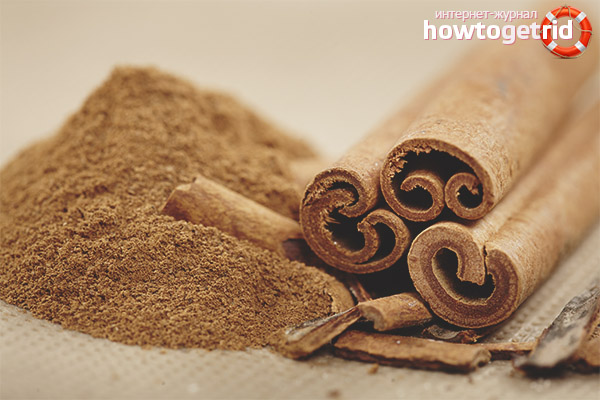
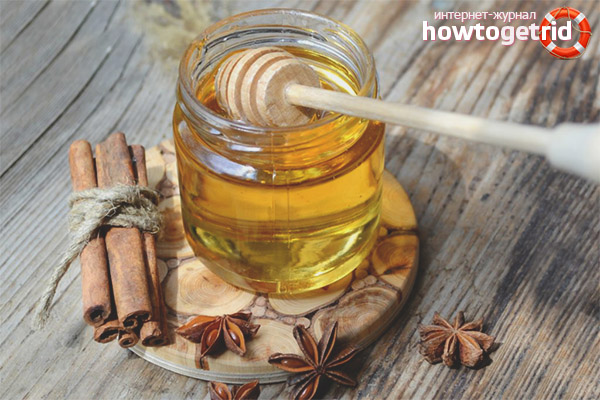

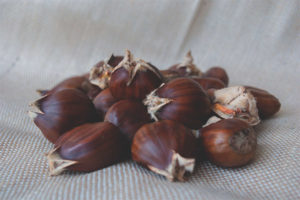
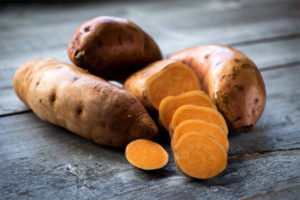
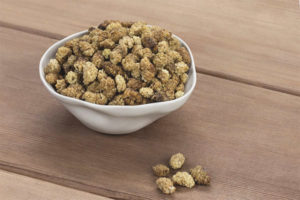
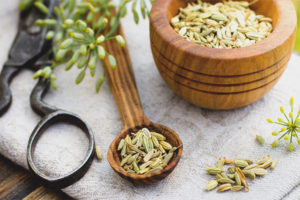
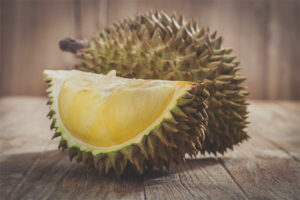
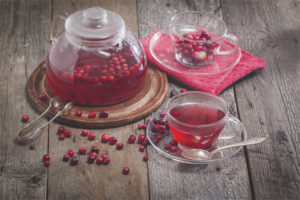
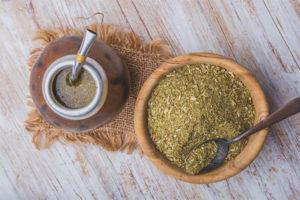
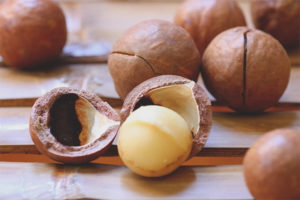
Submit